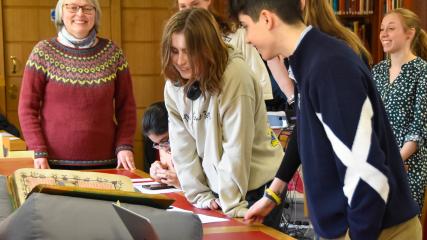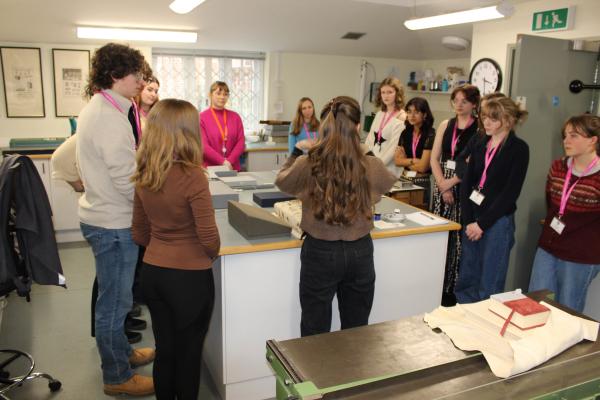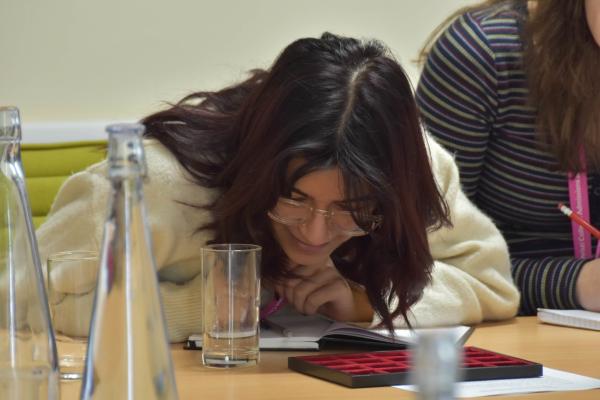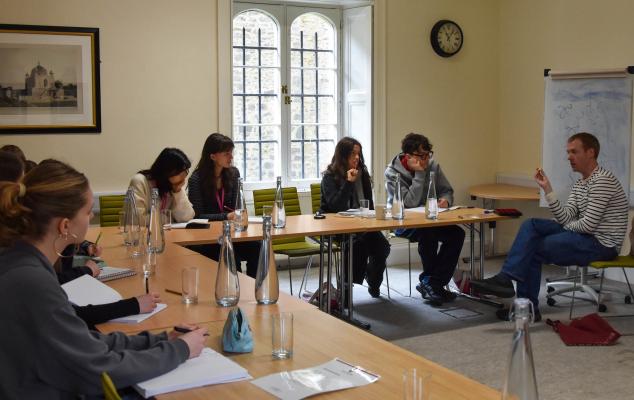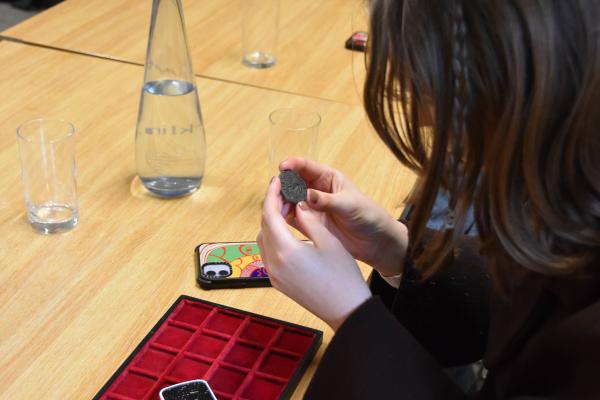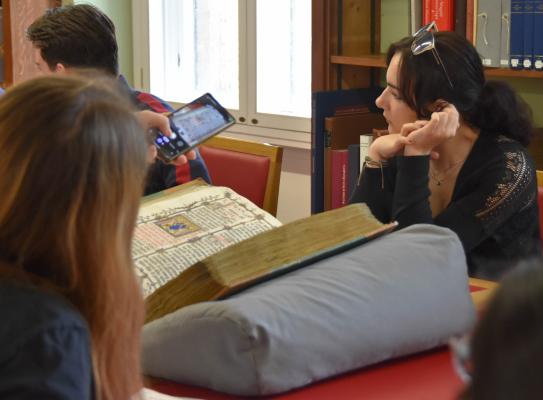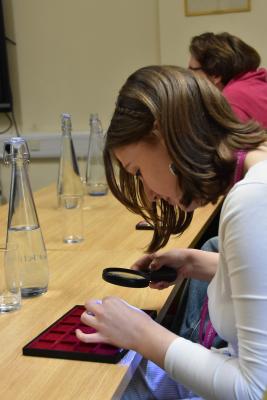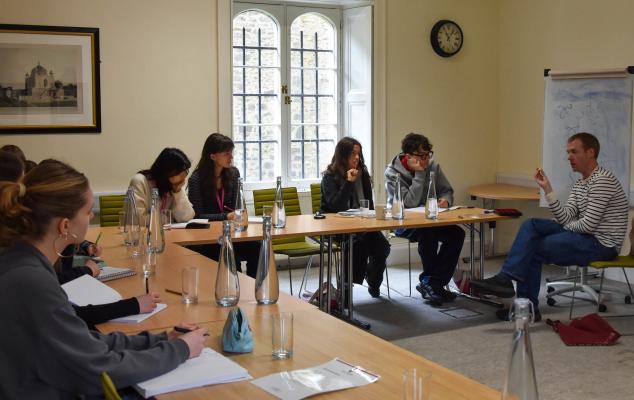Year 12 students experience Medieval Worlds
After a successful launch last year, the Medieval Worlds residential returned earlier this month when we welcomed 20 aspiring English and History Year 12 students to College to be immersed in the world of medieval manuscripts and texts.
The programme included an introduction to manuscripts, how to handle them, how to interrogate them, and what we can learn not only from what is contained within the text but also from them as objects as well. There were workshops led by University of Cambridge subject specialists, covering narrower themes and topics relating to the further study of the medieval aspects of History, English and Anglo-Saxon, Norse and Celtic.
The event was hosted in conjunction with the internationally renowned Parker Library, which contains the third largest collection of ancient manuscripts in the UK and has been housed in Corpus since the late 16th century after Matthew Parker (1504-1575), Archbishop of Canterbury and former Master of Corpus Christi, left his extensive personal library of manuscripts and books to the College in his will.
Here's what one of our residential attendees had to say about their experience:
For the longest time, I thought Cambridge was a half made-up dream an irrevocably ambitious academic came up with. You can imagine my awe and relish then, when I stood before the entrance of Corpus Christi College and found out that it is, as a matter of fact, not a made-up utopia but a real place immersed in brilliance.
I have always been intrigued by the Medieval period, although I did not know much about it. It was in part the obscurity of it - in how little I knew of the Middle Ages, and yet how startlingly aware I was of the fact that it has been substantially responsible for where we are today. More than anything, I was intrigued by the evolution of literature (given my love for reading and writing, and my aspiration to study English at university) and the themes from back then that have survived in worldwide literature today.
The Medieval Worlds residential in Corpus Christi College, which is one of the prestigious, architecturally and historically prosperous colleges at the University of Cambridge, presented to me an opportunity to not only develop my knowledge of the Middle Ages, but also to sharpen my interest in it, learn a myriad of things about manuscripts, conservation, representation of the medieval period in modern day films, but also to truly appreciate history - the good, the bad, the whole spectrum of untapped beauty.
I had the privilege to visit the Parker Library, named after bishop Matthew Parker, with 19 fellow like-minded students from across the UK to look at manuscripts of their only kind from the 9th century to the 13th century, and learn about ways to identify context by simply observing the script, typography, the appearance of the exquisite illuminations in the margins, and the parchment. From St. Augustine in Canterbury to Cicero, I was enraptured in an atmosphere of profound knowledge that has survived through centuries worth of war and conflict, but also joy and hope.
I know now of how these beyond-valuable manuscripts are conserved and repaired should they get damaged, and how parchment is made. In Flavio’s words, who talked us through the process of conservation and making a manuscript, “Any animal can be made into paper.” Exploring some medieval stereotypes and how they are depicted in movies, discussing the origins of fantasy, an element of the ‘supernatural’ as seen in mediaeval literature, and learning about hermits and solitude are some other highlights of my stay at the college.
The two days I spent there were perhaps the longest yet quickest I have ever lived. For me, it was a unique and memorable experience that has further strengthened my love for literature, specifically the medieval aspects of it. My favourite part was seeing how all this ancient evidence of a golden age has survived and continues to be a highly valuable resource not just for academics, but also for creative exploits. Despite my fatigue, I spent most of the 5-hour long journey back home researching and reading translations of Anglo-Saxon poetry, and reliving the experience I had in Cambridge through words that are an indispensable part of the foundation of history as we know it today.
Year 12 student from St. Crispin’s School

